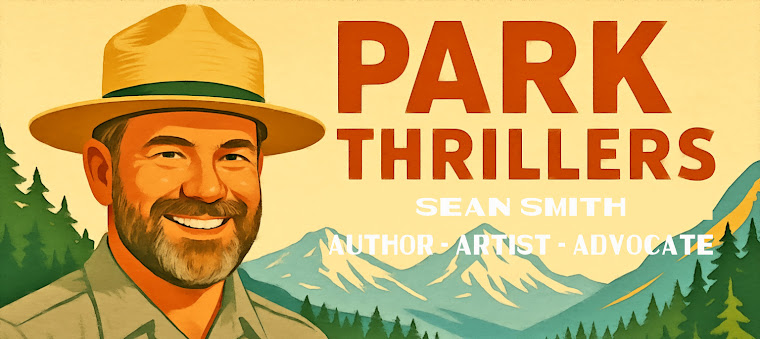To mark this moment, I’ll be launching a series of blog posts that explore the American Revolution, the subsequent ratification of the Constitution, and the ideas behind these two founding documents, and use the national parks as a lens to focus and center the posts.
Why National Parks?
America’s national parks are more than scenic backdrops or vacation destinations. They are repositories of memory, places where ideals were argued over, defended, tested, and sometimes betrayed. Many parks commemorate Revolutionary War battlefields. Others protect halls of debate, protest sites, migration routes, and landscapes that embody the values the Revolution set in motion: liberty, representation, equality before the law, and civic responsibility.
By grounding this series in national parks, each post will connect place, history, and principle, reminding us that the Revolution was not an abstraction. It happened on real ground, among real people, facing real risks.
The Founders’ Case for Revolution
At the heart of this series will be the question that defined a generation:
Why did the Revolution have to happen?
The founding generation did not rebel casually or impulsively. They argued for years, often fiercely, over whether independence was necessary. Some maintained that a clean break from Great Britain was needed because London based political power had become unaccountable, with colonists' representation in the political process hollow and their fundamental human rights conditional. They believed liberty could not survive under distant authority unchecked by the consent of the governed. Meanwhile, other colonists supported remaining loyal to the British Crown and opposed independence as treason. The political system the colonists operated under, they argued, was flawed but just needed some tweaking.
Just as importantly, the founding generation arguing for Independence did not claim certainty. What they launched after the war, with the adoption of the U.S. Constitution, was something radical for its time: a self-conscious experiment in self-government, grounded in the belief that free people could govern themselves better than kings or emperors ever could.
An Experiment Still Underway
The American Revolution did not end in 1783. It continues every time citizens vote, protest, serve on juries, speak freely, or hold power to account.
That is why this series will also confront the present.
Alongside historical reflection, posts will examine how the Revolution’s purpose is misunderstood, distorted, or deliberately co-opted in modern political life. We will look at how appeals to “the founders” are often stripped of context, how revolutionary rhetoric is sometimes used to justify authoritarian impulses, and how our democratic institutions are weakened and freedoms undermined in ways the founders would surely condemn.
What to Expect from the Series
Over the course of 2026, readers can expect posts that:
-
Spotlight specific national parks and historic sites tied to Revolutionary ideals
-
Examine key moments, arguments, and turning points leading to independence
-
Explore the founders’ own doubts, disagreements, and hopes for the future
-
Contrast the Revolution’s core purpose with modern efforts to undermine democratic norms
-
Ask what it means, here and now, to be stewards of a 250-year-old experiment
Each post will stand on its own, but together they will form a connected narrative: one that treats the Revolution not as settled mythology, but as a living inheritance.
Why This Matters Now
Over the next 12 months, communities across the country will be holding celebrations and events marking the 250th anniversary. It provides us, the beneficiaries of the revolution, with the opportunity to remember and give thanks. But it also offers us an even greater opportunity to honestly reflect and confront the lessons of the revolution. And just as President Lincoln recognized that, despite the horrors of the Civil War, the nation could come out the other side with an opportunity for "a new birth of freedom." An opportunity for its citizens to recommit and more closer to achieving the founders' sacred goal of forming "a more perfect Union."
At 250, the United States faces questions strikingly familiar to those raised in the 1770s: Who holds political power? Who is accountable? What does liberty require? And what obligations come with self-rule?
By walking the ground where these questions first erupted and by revisiting the arguments that shaped a nation, we can better understand not only where we came from, but what is at stake now.
This series is an invitation: to learn, to question, and to recommit to the idea that the American Revolution was not the end of a struggle for democracy, but its beginning.
###
Meet Sean Smith, a master of conservation, adventure, and storytelling! This award-winning
conservationist and former National Park and Forest Ranger has trekked through the wilderness of Yellowstone, Glacier, Mount St. Helens, and the North Cascades, keeping nature safe with his trusty ranger hat and boots. But Sean's talents don't stop there. He's a TEDx speaker and even a private pilot.
But amidst all these adventures, Sean's heart beats for storytelling. He's been spinning tales since childhood, and now he writes thrilling national park novels that'll have you hooked from the first page. Imagine the drama and mystery of the mountains combined with the adrenaline of a rollercoaster ride. That's what you'll find in Sean's books, set against the majestic backdrop of Yellowstone, Gettysburg, and Mount Rainier. His most recent thriller is set in Glacier and will drop later this year.
So, if you're craving an escape into the wild, look no further. Grab a copy of Sean's novels and prepare for an unforgettable adventure. These stories will transport you to the heart of the national parks, where danger lurks and heroes rise. Don't miss out! Find all his captivating novels right here and in the QR code included.







